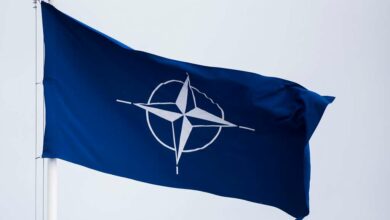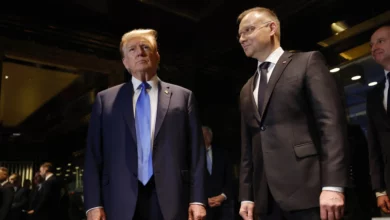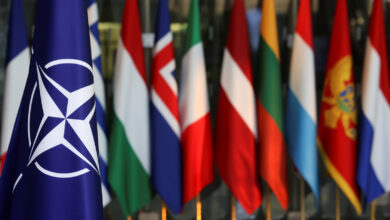Brussels — NATO reacted coolly on Monday to a ceasefire proposal for Libya, saying Muammar Qadhafi had broken his word repeatedly and the alliance would continue to target his forces as long as they threatened civilians.
South African President Jacob Zuma urged NATO to stop air strikes on government targets to give a truce "a chance," after Qadhafi said he accepted an African Union road map for ending the conflict in Libya including an immediate ceasefire.
NATO Secretary-General Anders Fogh Rasmussen told a Brussels news briefing that Qadhafi's government had announced ceasefires in the past, but "they did not keep their promises."
A NATO statement said government forces had shelled the western town of Misrata for more than 30 minutes on Monday, "despite the Qadhafi government talking of a ceasefire."
Rasmussen said he had taken note of the African Union ceasefire proposal but said: "We have not received any formal request as regards the implementation of any ceasefire."
A truce would require an effective monitoring mechanism, he said. "Any ceasefire must be credible and verifiable…There must be a complete end to violence and a complete end to all attacks and abuses of civilians."
Rasmussen also said any solution would have to answer the demands of the Libyan people for political reforms. He said he looked forward to a meeting of the international contact group for Libya in Doha on Wednesday, which would provide the framework for a lasting settlement.
A rebel spokesman in Misrata said forces loyal to Qadhafi had fired Russian-made Grad rockets at targets in the city.
The NATO statement said Qadhafi's forces had continued to mass large numbers of tanks and other armoured vehicles in and around Misrata and a
NATO satellite photo showed tanks were being placed next to public buildings.
Rasmussen said the alliance was taking "vigorous action" across Libya under a UN mandate to prevent violence against civilians. Asked if it would consider scaling back strikes to facilitate a ceasefire, he said:
"Our operational tempo will be determined by this clear goal to protect civilians against any attack."
NATO SORTIES
NATO said it conducted 154 sorties over Libya on Sunday, 70 of them "strike sorties," which do not necessarily use munitions each time. This brought the total since NATO took over operations on 31 March to 1721, including 713 strike missions.
Rasmussen said 300 sorties since Saturday had destroyed 49 tanks, nine armoured personnel carriers, three anti-aircraft guns and four large ammunition bunkers. The vast majority of the strikes were near Misrata and Ajdabiyah, he said.
"I am particularly concerned by the desperate plight of the residents of Misrata and Ajdabiyah, who are terrorized by… brutal attacks," he said.
The commander of the NATO operation, Lieutenant-General Charles Bouchard, said NATO was finding and destroying Qadhafi's military hardware with increasing success "despite his attempts to hide behind civilians."
"His forces are showing signs of confusion but the pressure will remain and our forces are determined to protect civilians from these attacks."
The NATO strikes outside Ajdabiyah on Sunday helped break the biggest assault by Qadhafi's forces on the eastern front in at least a week. The town is the gateway to the rebel stronghold of Benghazi 150km (90 miles) north on the Mediterranean coast.
Rasmussen reiterated NATO's view that there could be no purely military solution in Libya and said the alliance wanted to avoid a stalemate in which the country it became a failed state and a haven for militants.
"We should do our utmost to avoid that situation and this is also the reason why I hope to see a political solution to the problems in Libya sooner rather than later, because we know from experience that extremists and terrorists can take advantage of and profit from long-term instability," he said.




